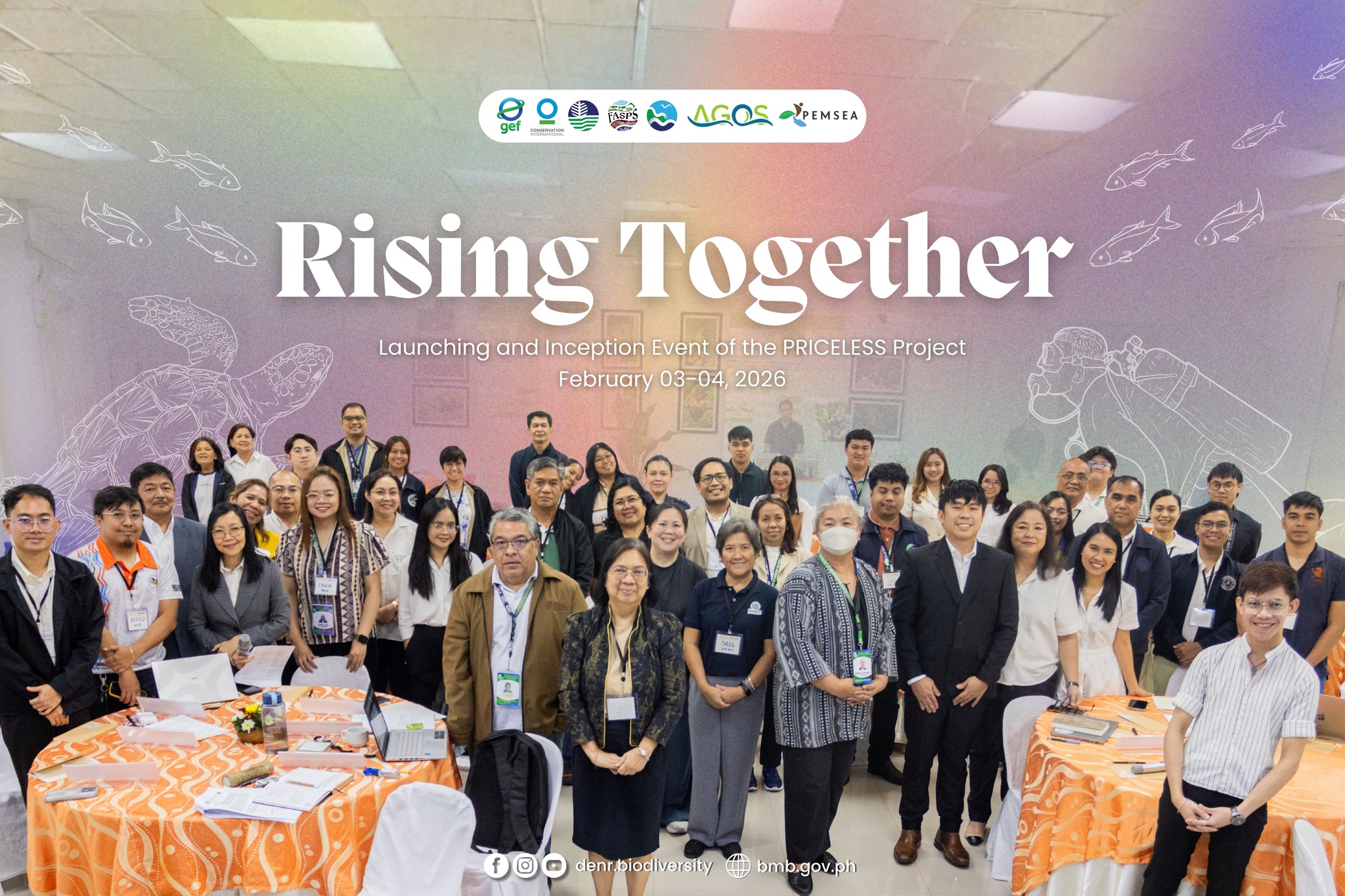EAS Congress 2012 Workshop Series: Securing Ecosystem Services
Friday, 4 May 2012

Quezon City, Philippines — The East Asian Seas Congress 2012 subtheme on “Securing Ecosystem Services through Integrated Coastal and Ocean Management,” will take a closer look at how integrated coastal and ocean management serves as a sustainable approach in protecting and managing coastal and marine resources. The series will specifically cover how an effective ICM approach affects food security, water use, and biodiversity in Seas of East Asia. Furthermore, the series shall also highlight the good practices of various ICM communities and discuss how these practices could be sustained and replicated in other communities.
The subtheme will be chaired by Mr. Rodrigo Fuentes, Executive Director of the ASEAN Centre for Biodiversity. Mr. Fuentes has been working for more than 30 years in the field of environment and natural resources with various international organizations such as the ASEAN, Asian Development Bank, UN agencies, and the Work Bank.
Workshop 1: Food Security in Watersheds and Coastal Areas
The workshop will discuss how an integrated approach in managing coastal and marine resources affects food security in the East Asian Seas region. The workshop will specifically highlight how ICM initiatives in the region have affected access to coastal and marine resources and the availability of these resources. Furthermore, the workshop will also tackle how organizations and institutions can strengthen their ICM initiatives in support of sustainable development and ensuring food security in the region.
This workshop will be co-convened by the WorldFish Center, an international research institution dedicated to reducing poverty and hunger by improving fisheries and aquaculture.
Workshop 2: Using ICM as a Tool to Achieve Aichi Targets
The Seas of East Asia are among the most biologically diverse regions in the world. However, human activities, such as pollution, overexploitation of marine resources, and habitat destruction, continue to threaten the region’s rich resources.
The workshop aims to highlight regional initiatives designed to address coastal and marine biodiversity loss. The workshop will also cover how community-based activities on habitat restoration, preservation of coral reef integrity, and other conservation efforts can be enhanced and how these efforts can help in achieving the Aichi Biodiversity Target of conserving 10 percent of the Earth’s marine and coastal area by 2020.
The co-conveners of this workshop include the ASEAN Center for Biodiversity, the APEC Marine Sustainable Development Center, and the GIZ-ACB Biodiversity and Climate Change Project
Workshop 3: Consolidation and Replication of ICM Lessons and Good Practices
The workshop will assess the strengths, challenges, and opportunities in implementing ICM initiatives around the East Asian Seas region. The workshop aims to develop a feasible roadmap in scaling up the ICM implementation across the region, particularly in highly urbanized coastal cities. Furthermore, the roadmap shall also discuss approaches on strengthening the local government networks in pushing for a sustainable blue economy in the region.
The workshop will be co-convened by the Ocean Policy Research Foundation (OPRF) of Japan.
Workshop 4: Subtheme 3 Plenary
The subtheme plenary will discuss key recommendations and conclusions of the three workshops featured under the subtheme and aims to develop the message for presentation to the Ministers and all Congress participants during the closing ceremony of the international conference.
The subtheme “Securing Ecosystem Services through Integrated Coastal and Ocean Management,” is third of five major subthemes that will be covered at the International Conference of the East Asian Seas Congress 2012 from July 9 to 11, in Changwon City, Republic of Korea.
Legislators, policymakers, NGOs, the academe, the private sector, and the UN and other international organizations are invited to participate in these workshops.
The EAS Congress 2012, with the theme, “Building a Blue Economy: Strategy, Opportunities and Partnerships in the Seas of East Asia.” is hosted by the Republic of Korea and co-organized by the Ministry of Land, Transport, and Maritime Affairs (MLTM), the City Government of Changwon and PEMSEA. It is supported by the Global Environment Facility (GEF), the United Nations Development Programme (UNDP), and the United Nations Office for Project Services (UNOPS).
For more information on the EAS Congress, contact the Secretariat at congress@pemsea.org or visit http://eascongress.pemsea.org.




